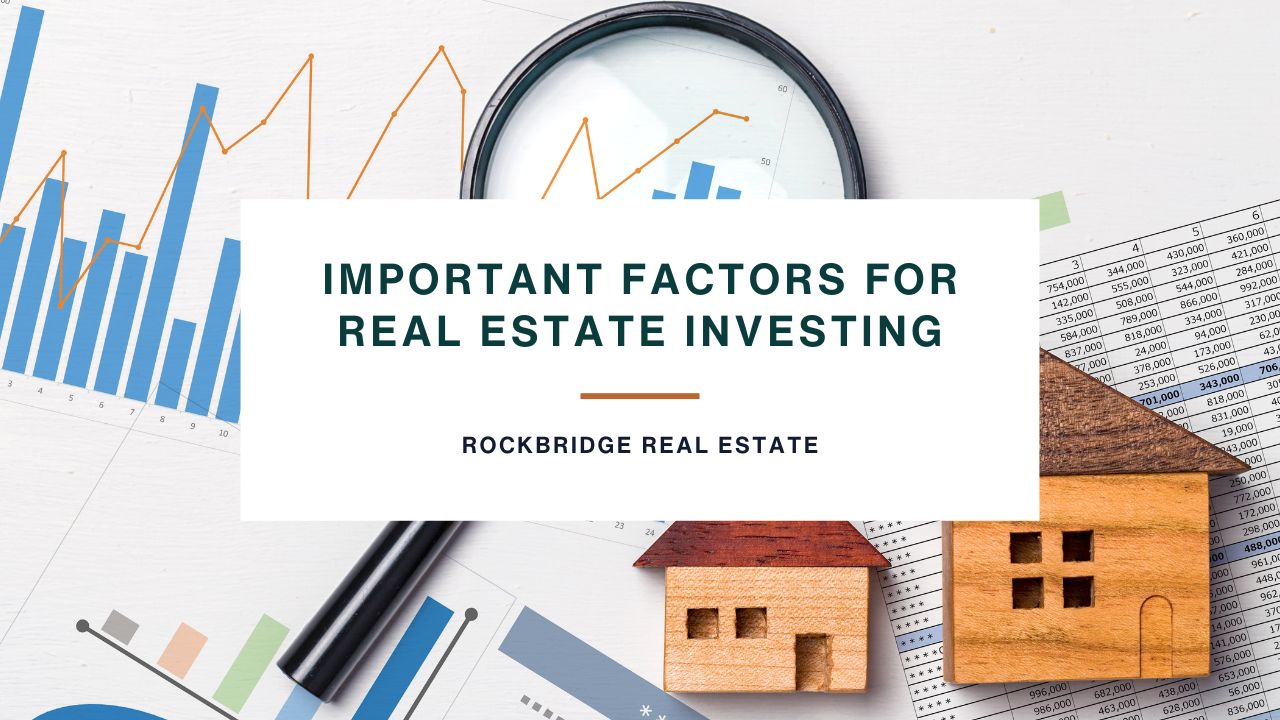

Have you ever thought about what truly drives success in any real estate investment? In the dynamic market of real estate investment, understanding key factors can be the difference between breaking even and growing long-term wealth.
This article delves into these essential investment elements, offering investment insights and investment strategies specifically tailored for landlords. Whether you're new to real estate or a seasoned investor, this guide promises to enhance your real estate investing approach, ensuring you make informed investing decisions that maximise returns and minimise risks.
Here are some steps to factors to consider when you choose to invest in the real estate market:
Don’t Underestimate the Power of Location
Location is one of the top considerations investors to make before purchasing an investment property. This is because the value of residential properties is heavily influenced by proximity to amenities, natural beauty, and neighbourhood prestige. For commercial properties, being near markets, transportation hubs, and tax-advantaged zones is vital. A residential property should be near green spaces, schools, shopping centers and entertainment hubs.
When investing you should also focus on the potential evolution of the location over time. For instance, tranquil spaces near your property today could transform into industrial zones in the future, affecting your investment’s value. To anticipate these changes, engage with local zoning and urban planning authorities for insights into future developments.

Make Sure to Assess Property Value
Figuring out a property's worth is a big deal in real estate investing. It affects how much a real estate investor can borrow for their investments, how much tax you pay, how much insurance coverage you need, and what your projected returns will be.
To do this, you can research and compare the potential property with similar, recently sold ones. Look, specifically, estimate how much income it could generate. Doing your due diligence helps you make smart financial decisions.
Clarify Your Investment Goals and Timeline
Before investing, think about what you want to achieve and how long you're willing to wait. Are you looking for quick profit or planning to hold onto the property for years, to benefit from value increases? Your goals will guide your investment choices – whether it's buying a property to live in, rent out, or flip and sell quickly.
Estimate Your Cash Flows and Profits
This is about figuring out if the real estate investment property will make more money than it costs to keep. Consider the rent you’ll receive, minus expenses like maintenance, taxes, and mortgage payments. Also, think about how the property's value might grow over time and any tax breaks you might get. The goal is to have more income than expenses.
Understand and Manage Leverage
Leverage means using borrowed money to invest. It can boost your profits if property prices go up. It can also be risky if things don't go as planned and you might struggle with repayments. When choosing a mortgage, consider the different types like fixed-rate or adjustable, and pick one that best suits your situation.

Loan Management Strategies
The following are some loan management strategies to consider for your real estate investments:
- Choose the right type of mortgage
- Understand lender terms and conditions
- Shop around for favourable interest rates and terms
Choose Between New Construction and Existing Properties
Deciding between buying a brand-new property or an older one is important. New properties let you customize the investment property and often come with the latest features, but they can have unexpected delays and costs. Older properties might be cheaper and available immediately, but they could need more repairs and upfront maintenance.
Key Considerations
For new real estate investment properties make you research the developer's track record. Whereas, for existing properties, review legal documents and consider ongoing costs. You should also evaluate the status of leased properties and included items in the sale.
Explore Indirect Real Estate Investments
Not keen on managing a property? You can still invest in real estate indirectly. This can be through REITs, companies that own or finance properties, stocks of real estate companies, or mutual funds that focus on real estate. These real estate options can be easier to manage than owning physical property.
Understand Role of Your Credit Score in the Purchasing Process
A real estate investor's credit score is super important when getting a mortgage. A higher score usually means better loan terms, like lower interest rates. Here are some tips to help investors improve their credit score:
- Pay bills on time
- Reduce debt
- Maintain low credit utilization
- Keep old credit cards open
- Limit new credit applications
- Regularly check and correct your credit report
![]()
Keep Up with the Real Estate Market
Real estate is always changing, so it's good to stay informed. Keep an eye on things like how much houses are selling for, how many houses are for sale, and what mortgage rates are like. Understanding these trends helps you buy and sell at the right time.
Market Indicators to Watch
The following are some key real estate market indicators to keep an eye on:
- Home prices and sales
- Construction trends
- Property inventory levels
- Mortgage rates
- Flipping and foreclosure activities
Bottom Line
Remember that the path to success in real estate investing is both exciting and complex. Embracing these key insights will undoubtedly steer you towards smarter investments. If you're looking for that extra edge, consider partnering with a professional team like Rockbridge Real Estate. Our expertise and deep understanding of the market can be invaluable in navigating your investment journey.
With Rockbridge Real Estate by your side, you’re investing in your peace of mind and potentially greater returns. Take your real estate venture to the next level with Rockbridge Real Estate – where your investment dreams can become a reality!